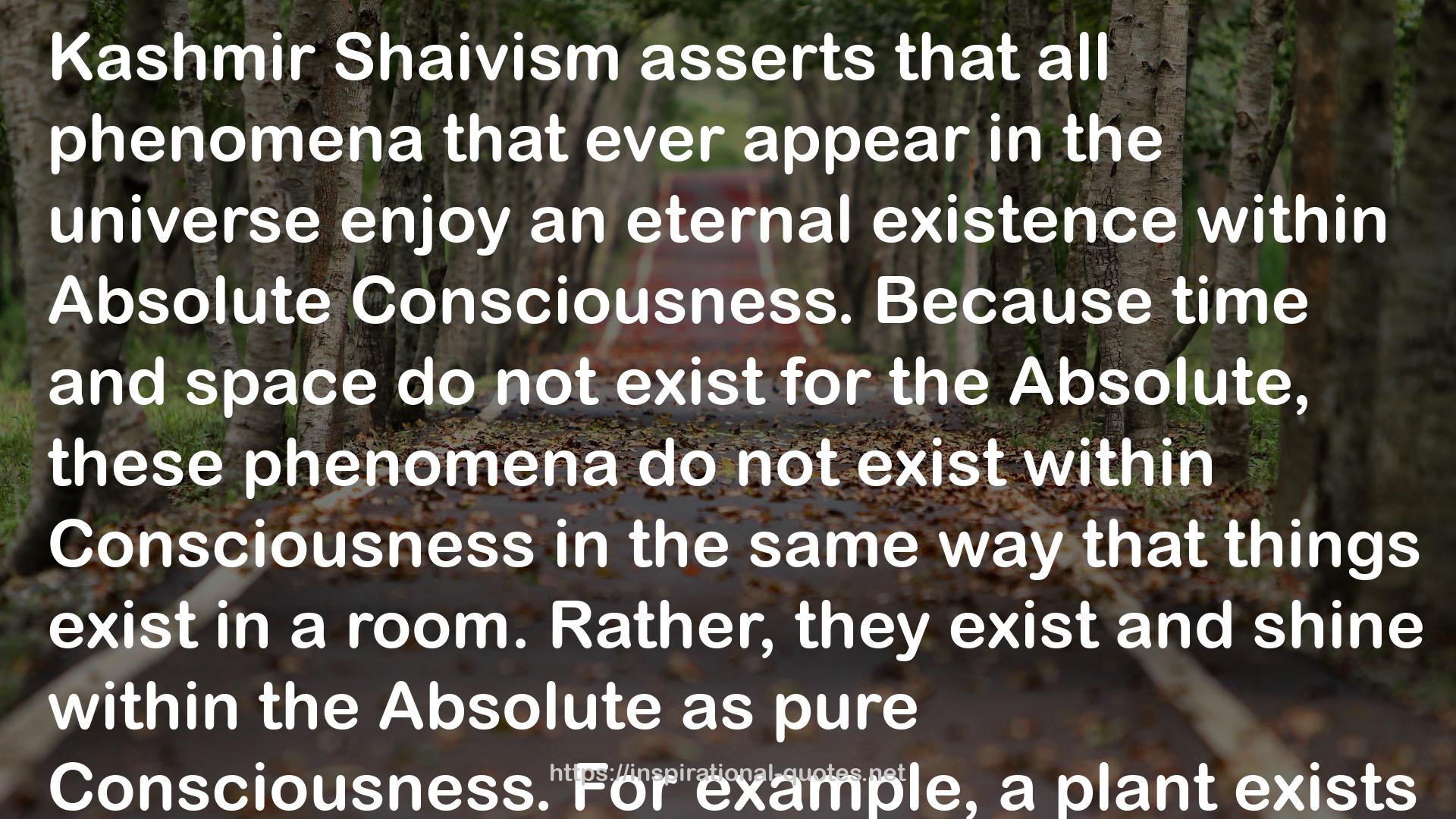" Kashmir Shaivism asserts that all phenomena that ever appear in the universe enjoy an eternal existence within Absolute Consciousness. Because time and space do not exist for the Absolute, these phenomena do not exist within Consciousness in the same way that things exist in a room. Rather, they exist and shine within the Absolute as pure Consciousness. For example, a plant exists in a seed in the form of the potential of the seed to appear as a plant. The whole universe exists within Absolute Consciousness in the form of its divine potency. Consciousness is capable of appearing as anything and everything in the universe by Its own free will. Therefore, the philosophy asserts that all things have an eternal and absolutely real existence within pure and absolute Consciousness. This approach is known as spiritual realism and is another example of a theory that is particular to Kashmir Shaivism.
Spiritual realism is considerably different from the realism of other philosophical systems, for instance material realism of the Nyaya-Vaisesika and Samkhya schools. Also, this realism should be differentiated from certain forms of idealism in both India and Europe. These idealists generally consider phenomenal existence to be the outward manifestation of past mental impressions appearing like things in a dream. According to Kashmir Shaivism, the things of this world are not a dream because they enjoy a concrete existence in time, present a common target for the activities of many people, and serve a particular function. The things of this world are real for all practical purposes. In other words, the authors of Kashmir Shaivism have worked out a pragmatic realism.
— B. N. Pandit, Specific Principles of Kashmir Shaivism (3rd ed., 2008), p. xxi-xxii "
― Balajinnatha Pandita , Specific Principles of Kashmir Saivism
